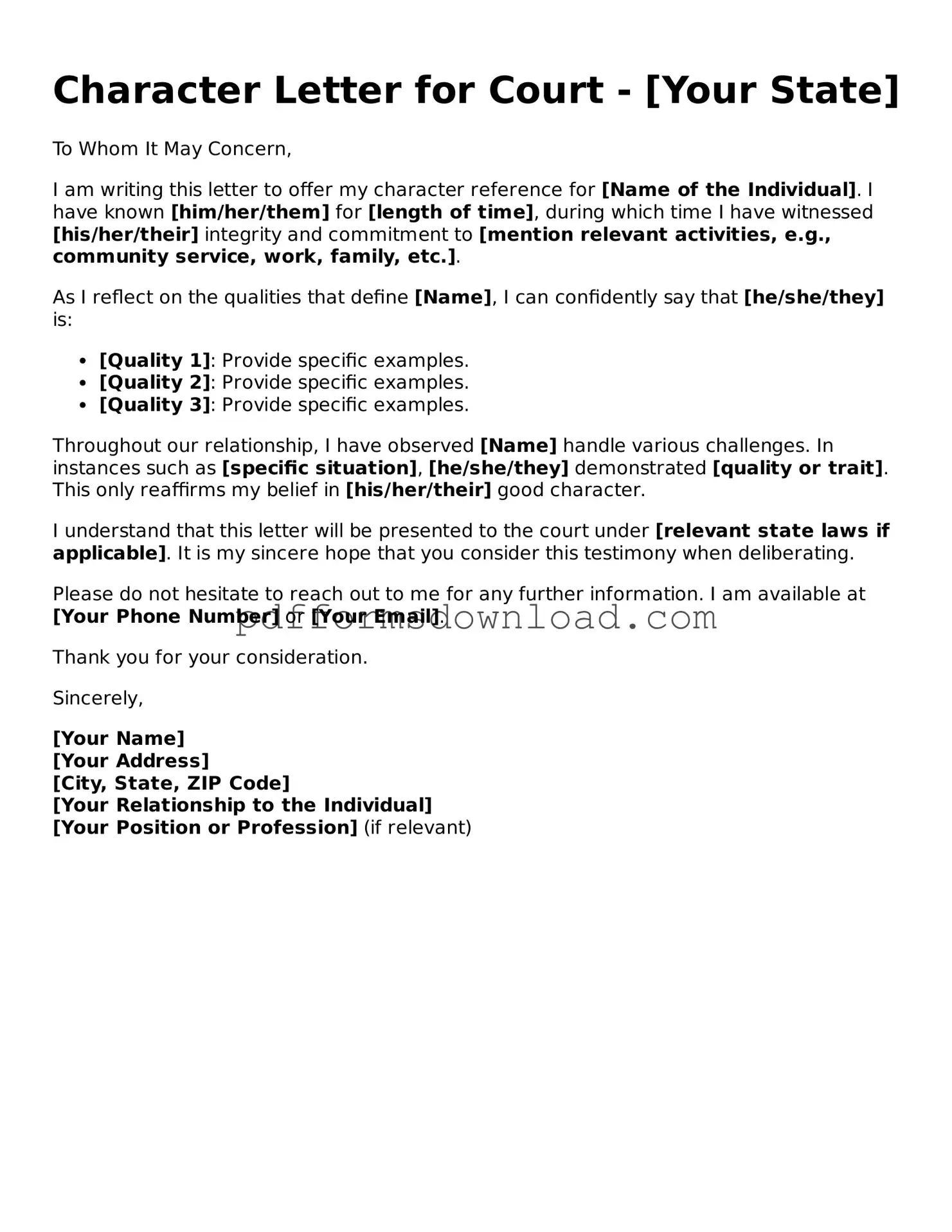Official Character Letter for Court Document
The Character Letter for Court is a document that provides the court with insights into an individual's character, typically written by friends, family, or colleagues. This letter can play a crucial role in legal proceedings, offering a personal perspective that may influence the judge's decision. If you’re looking to support someone in court, consider filling out this form by clicking the button below.
Make This Document Now

Official Character Letter for Court Document
Make This Document Now

Make This Document Now
or
Free PDF File
Your form is almost ready
Complete your Character Letter for Court online — edit, save, and download easily.